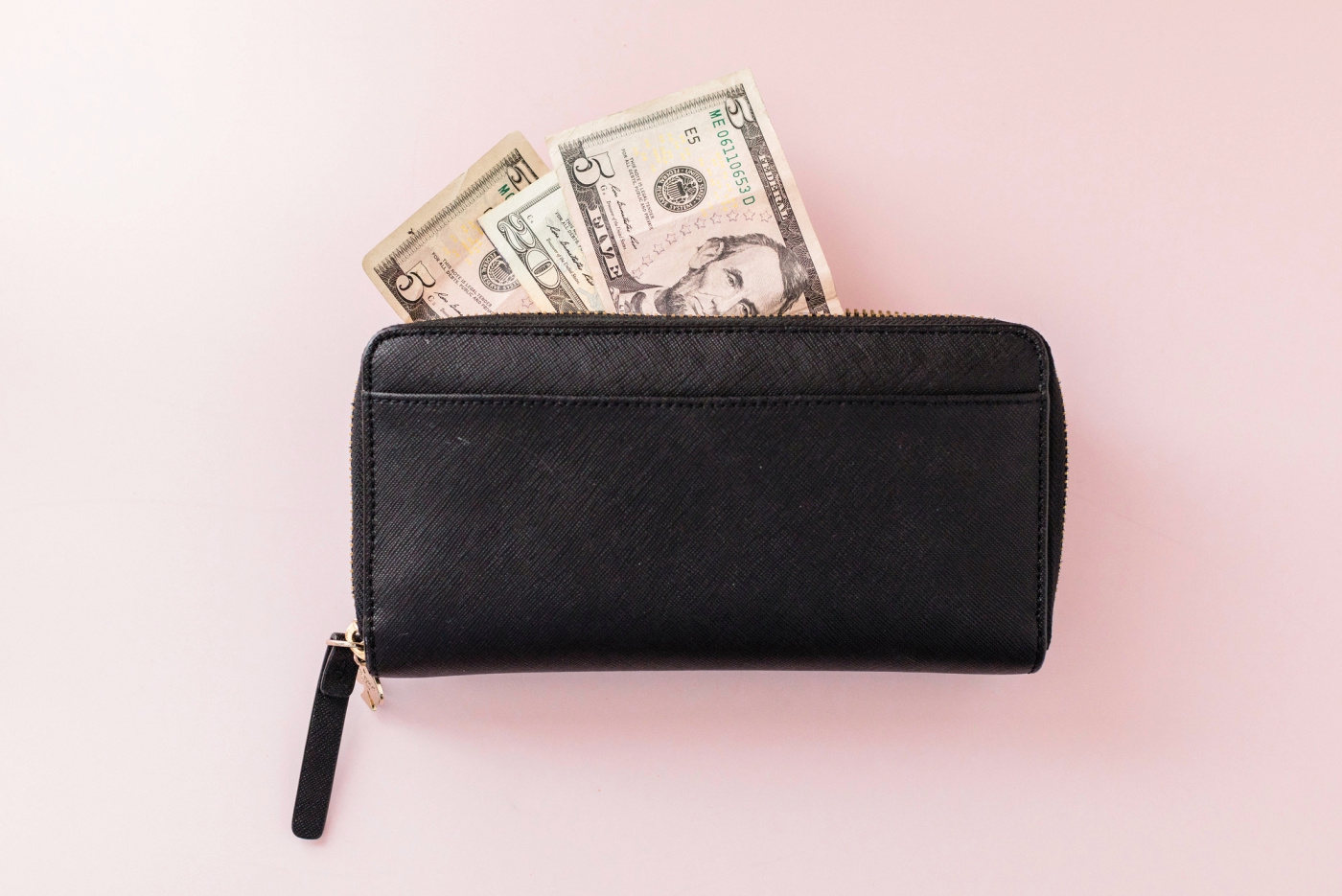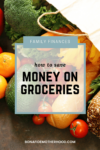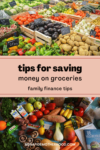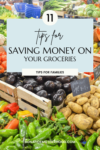11 Tips for Saving Money on Groceries
This post may contain affiliate links, which means I’ll receive a commission if you purchase through my links, at no extra cost to you. Please read full disclosure for more information.
Last updated on November 25th, 2024 at 11:03 am
From what I can tell, groceries are everyone’s top concern right now. Food prices are getting so high that people are struggling more than ever to put food on the table. But even with the high food prices, there are tips you can use to keep your food costs low (or at least lower). These tips for saving money on groceries will help you keep your food budget from exploding.
Look into cheap staples and protein sources
If you’re on limited funds for groceries, it’s crucial to know what will get you the most bang for your buck. For example, lentils are pretty cheap, and they’re a great protein source to blend into a sauce. Beans in general are going to get you protein for relatively cheap, especially if you buy dried beans. Potatoes and carrots are great veggies that are going to be a good base for a lot of things, like beef stew. Rice is also a great, cheaper staple to have in your pantry.
Check out frozen and canned perishables
It’s worth comparing the price of frozen/canned foods to fresh foods, like fruits and vegetables. Sometimes it is cheaper to buy frozen/canned, and sometimes it’s cheaper to buy fresh. Frozen and canned foods are typically put together at the perfect moment, and there’s functionally no difference in the health benefits. So, don’t be worried if you need to buy frozen or canned vegetables. They’re still good for you. Buying frozen/canned foods can also help you get fruit and vegetables during the winter without the higher cost.
Check if it’s worth making from scratch
If you’re looking through other blogs, the standard tip to save money on groceries is often to make things for yourself. Don’t buy almond milk – make it yourself. But that’s not automatically cheaper. Depending on what you’re buying, it might be cheaper to just buy the actual thing. Not to mention, sometimes making it yourself requires the right (and potentially expensive) equipment like a good blender or food processor. So, don’t assume that it’s cheaper to make. Compare ingredient prices to ready-made prices. You could be surprised.
That being said, if it is cheaper to actually make, then it could be worth it if you have the time.
Go with the season
Out-of-season items are more expensive because they have to be shipped in. (They’re also typically less delicious.) If you’re buying fresh food, it will save you money on groceries if you only buy in-season foods. During the spring, summer, and fall, this is super easy, but you might just want to go frozen or canned during the winter.
Look for sales in your weekly flyer
When you’re trying to save money on groceries, your weekly flyer is your best friend. Your grocery store’s local flyer will tell you exactly what’s on sale, which means you can go into your grocery store with a plan. You’ll know what makes sense to buy because you’ll already know what’s cheaper that week.
Be flexible with your recipes
This goes with the above two tips about staying in season and looking for sales. Sometimes it’s simply going to be cheaper to buy chicken instead of ham or pork chops. Sometimes strawberries will be on sale or zucchini will be cheap because it’s in season. Since you’re staying in season and specifically shopping sales, you’ll need to be flexible with your meals. There are tons of recipes out there, most of which you can adjust to work with fewer or cheaper ingredients, making them less expensive. Here are some ways to find cheap recipes.
One of the big tips people often have for saving money on groceries is meal planning, but this isn’t always the way. Meal planning can definitely save you time because you’re looking ahead and keeping everything organized. But it also means you’re creating set meals ahead of time when they might not work with sales.
So, if you’re really strapped for money, it might be worth planning your weekly recipes around the sales. This might mean you need to look up recipes on a weekly basis, but it can be worth it. You can also do small meal planning if you’re checking your grocery store’s flyer. Check what’s on sale and organize your meal planning for the week around that.
Compare the price of gas to the cost of shopping around
Another major tip people tend to share for saving money on groceries is to price check each store and find the cheapest items in each store. But this isn’t inherently cheaper, and it can be a major time suck. When it comes to shopping around, make sure you’re factoring in the cost of gas.
That being said, if you’ve got a couple of grocery stores in close proximity and the time, it might be worth checking out each weekly flyer and shopping the different sales.
Go store brand
This might seem obvious, but if you’re used to name brand, you might not think of it. I wouldn’t recommend buying everything store brand. There’s a reason why it’s cheaper, and depending on what you’re buying, you could be getting worse quality. But when it comes to your staples like butter, milk, baking supplies, etc., store brand is the way to go.
Look into your local farmer’s market
While some parts of the farmer’s market can be more expensive (like meat), there are parts of the farmer’s market that tend to be cheaper. This includes vegetables, eggs, fruit, and other goods. During the summer and fall, a farmer’s market can be an amazing way to supplement your grocery visits. Plus, it’s all great, fresh food, and buying it helps out your local farmers. So, if you have a local farmer’s market, it’s worth checking out.
Look into programs, too. My local farmers market also has a farm share that delivers right to my door. They also have a program where they’ll double your EBT/SNAP dollars, so you can get double the food if you’re paying with food assistance.
Go to the dollar store or a bulk store
While you’ll need to supplement with your local grocery store in order to buy fresh food, your local dollar store can help keep costs low on your non-perishables. You can usually get canned goods, bagged foods, and baking supplies. You might even be able to get some frozen goods. So, depending on your food habits, it could be worth a trip to the dollar store.
Bulk stores can help you keep costs down, too. Make sure you’re actually getting a good deal by checking the per-item cost, but it can be worth it.
These two options can be great for non-food household goods, too, like paper towels, soap, and laundry detergent.
Get help if needed
One final tip for saving money on groceries. If you’re really struggling, there is zero shame in using the resources that are there to help you, including food assistance and food banks. That’s literally what they’re there for. Again, you’ll need to be flexible with recipes, but a food bank haul every once in a while might save your butt. You can always pay it forward and donate when you’re doing better, too.
If you’ve got your own tips for sharing groceries, share them below! It’s important that we share our knowledge and get through this together.

Erin Lafond is a writer, website creator, and mom. She survived new motherhood by Googling things a lot, calling her mother, and embracing trial and error. Now, she shares her knowledge with all new moms. She lives in New Hampshire with her husband and two sons.












One Comment